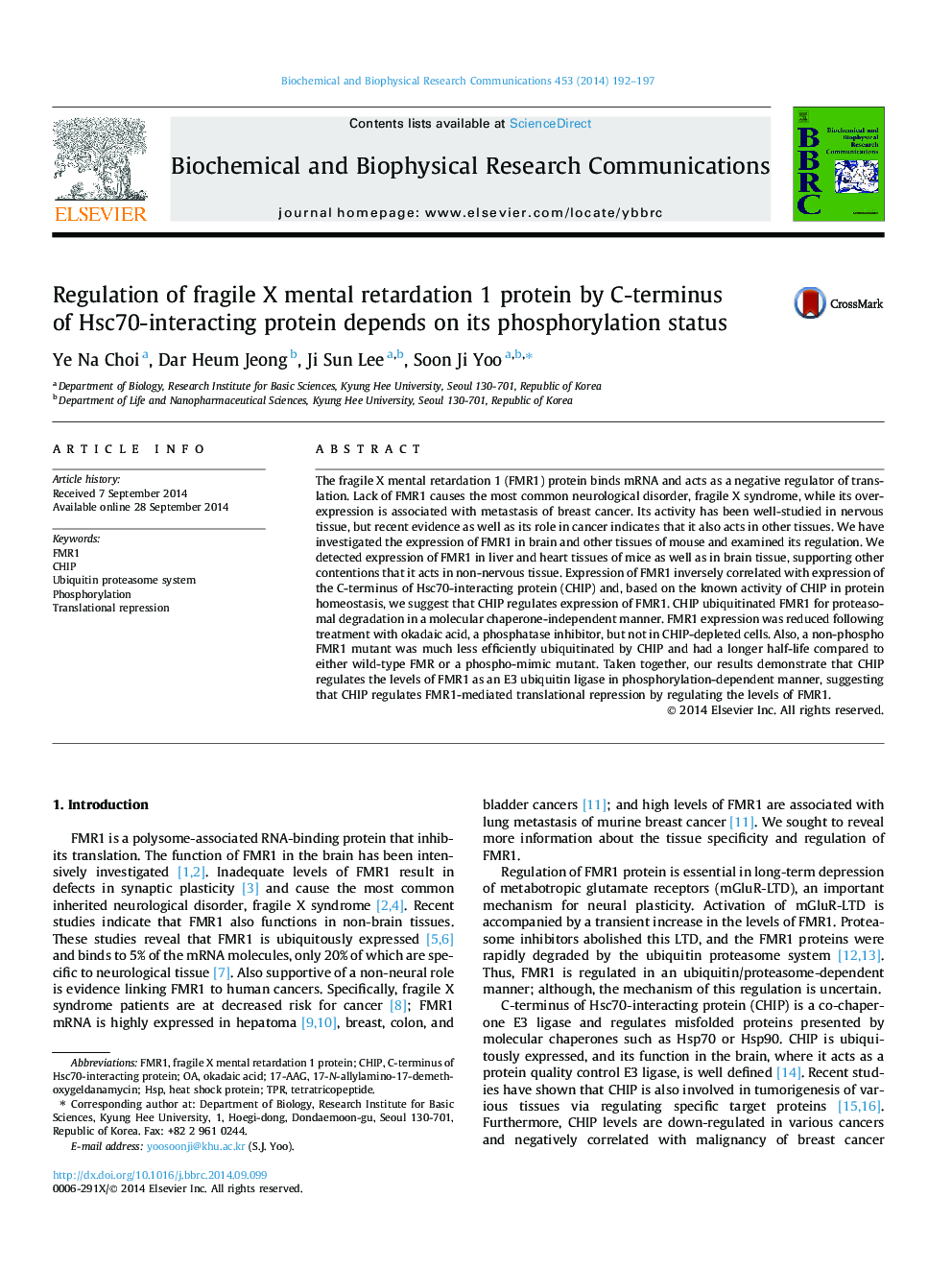| کد مقاله | کد نشریه | سال انتشار | مقاله انگلیسی | نسخه تمام متن |
|---|---|---|---|---|
| 1928333 | 1050347 | 2014 | 6 صفحه PDF | دانلود رایگان |

• The levels of FMR1 protein inversely correlate with CHIP expression.
• CHIP interacts with FMR1 via a non-tetratricopeptide repeat domain.
• FMR1 is regulated by CHIP in an ubiquitin proteasome-dependent manner.
• CHIP-mediated FMR1 regulation depends on phosphorylation status of FMR1.
• CHIP may play a role in regulating FMR1-mediated translational repression by regulating the levels of FMR1.
The fragile X mental retardation 1 (FMR1) protein binds mRNA and acts as a negative regulator of translation. Lack of FMR1 causes the most common neurological disorder, fragile X syndrome, while its overexpression is associated with metastasis of breast cancer. Its activity has been well-studied in nervous tissue, but recent evidence as well as its role in cancer indicates that it also acts in other tissues. We have investigated the expression of FMR1 in brain and other tissues of mouse and examined its regulation. We detected expression of FMR1 in liver and heart tissues of mice as well as in brain tissue, supporting other contentions that it acts in non-nervous tissue. Expression of FMR1 inversely correlated with expression of the C-terminus of Hsc70-interacting protein (CHIP) and, based on the known activity of CHIP in protein homeostasis, we suggest that CHIP regulates expression of FMR1. CHIP ubiquitinated FMR1 for proteasomal degradation in a molecular chaperone-independent manner. FMR1 expression was reduced following treatment with okadaic acid, a phosphatase inhibitor, but not in CHIP-depleted cells. Also, a non-phospho FMR1 mutant was much less efficiently ubiquitinated by CHIP and had a longer half-life compared to either wild-type FMR or a phospho-mimic mutant. Taken together, our results demonstrate that CHIP regulates the levels of FMR1 as an E3 ubiquitin ligase in phosphorylation-dependent manner, suggesting that CHIP regulates FMR1-mediated translational repression by regulating the levels of FMR1.
Journal: Biochemical and Biophysical Research Communications - Volume 453, Issue 1, 10 October 2014, Pages 192–197